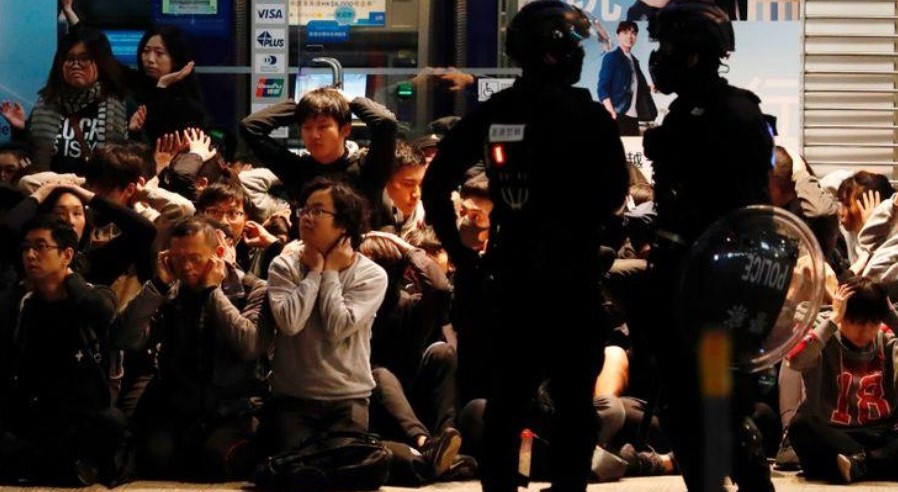Hong Kong Police Arrest Pro-Democracy Newspaper Executives

Hong Kong police arrested five executives of the pro-democracy newspaper Daily Apple early Thursday morning. The police say that four men and a woman between the ages of 47 and 63 have been arrested on suspicion of foreign interference, which would have endangered national security.
Editors in chief Ryan Law and publisher Cheung Kim-hung have been arrested, among others, the South China Morning Post reports. According to the newspaper, about two hundred officers broke into the headquarters around 7 a.m. local time, and the operation was over by 1:30 p.m. The officers searched, among other things, laptops and documents. Police said they are looking for evidence of inciting foreign interference. The journalists were not allowed to enter the workplace and register before entering the building.
During a press conference, a police chief said that at least 30 articles from the Daily Apple were the reason behind the raid. Those articles call on foreign powers to impose sanctions on Hong Kong and China. It mainly concerns opinion pieces and commentary, some of which are written by the owner of the newspaper, media tycoon Jimmy Lai.
It is the second police raid on the newspaper in a year. In late May, 73-year-old Lai was found guilty of staging an unauthorized rally during one of the 2019 democracy protests. Lai is considered one of the key activists in Hong Kong.
The authorities report that the bank balances of the newspaper have also been frozen. It is about 2 million euros. During a press conference on the raid, Security Minister John Lee Ka-chiu emphasized that journalists can still do their work safely in Hong Kong. “As long as they follow the law and especially the National Security Act. Journalists should distance themselves from the Daily Apple’s way of working.”
More than 10,000 people were arrested in pro-democracy protests, which regularly got out of hand. About a quarter of these protesters have been convicted. The most important leaders of the pro-democracy movement are incarcerated or have fled abroad. The wave of protests came to an end over a controversial security law that Beijing introduced in Hong Kong. It prohibits the pursuit of secession, foreign interference and subversive activities.